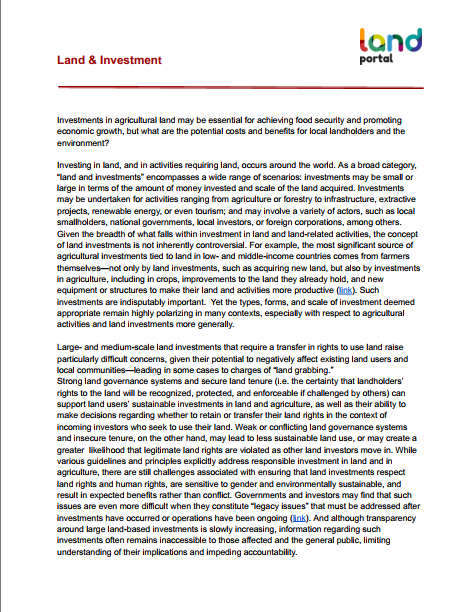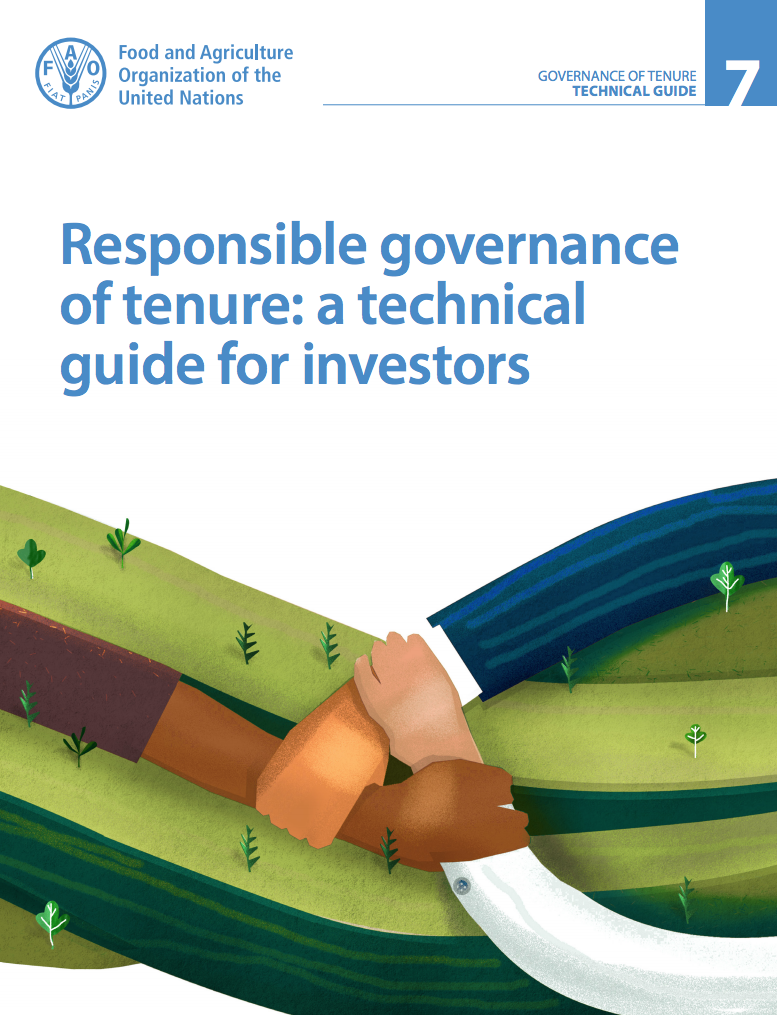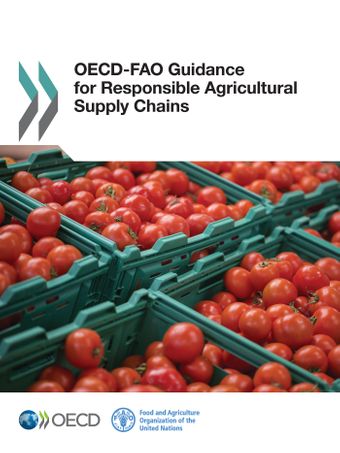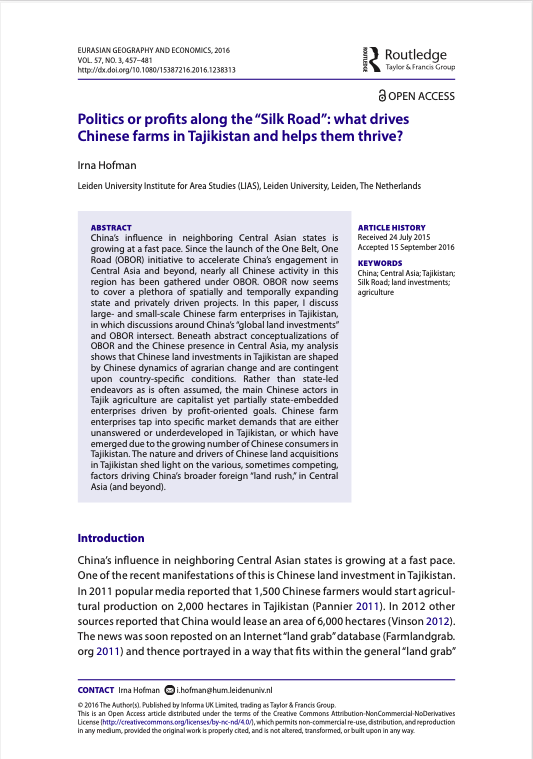Land and Investment
Investing in land, and in activities requiring land, occurs around the world. As a broad category, “land and investments” encompasses a wide range of scenarios: investments may be small or large in terms of the amount of money invested and scale of the land acquired. Investments may be undertaken for activities ranging from agriculture or forestry to infrastructure, extractive projects, renewable energy, or even tourism; and may involve a variety of actors, such as local smallholders, national governments, local investors, or foreign corporations, among others.











